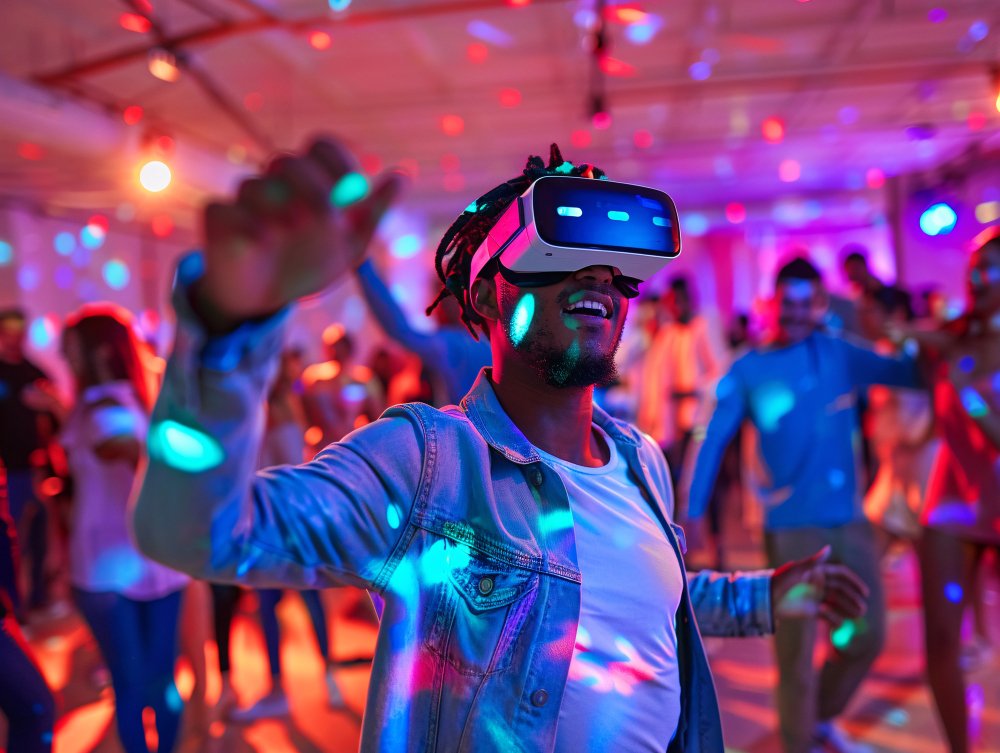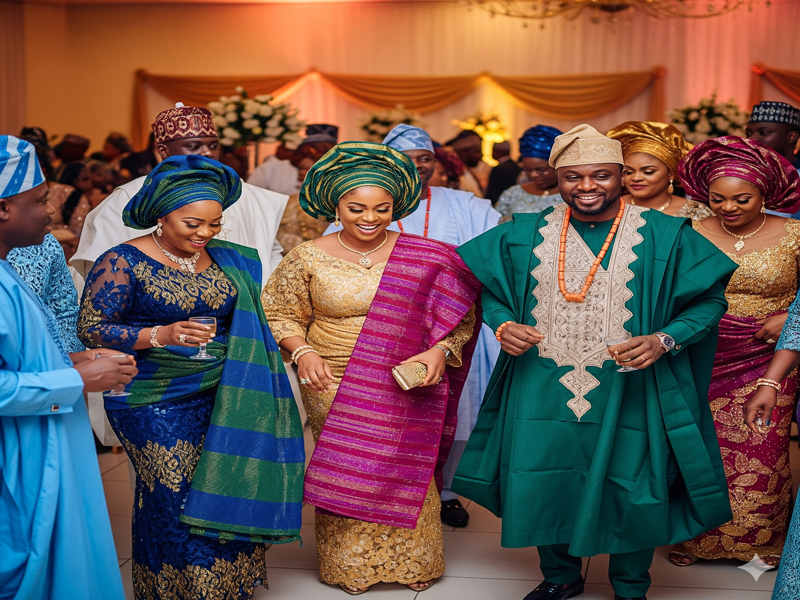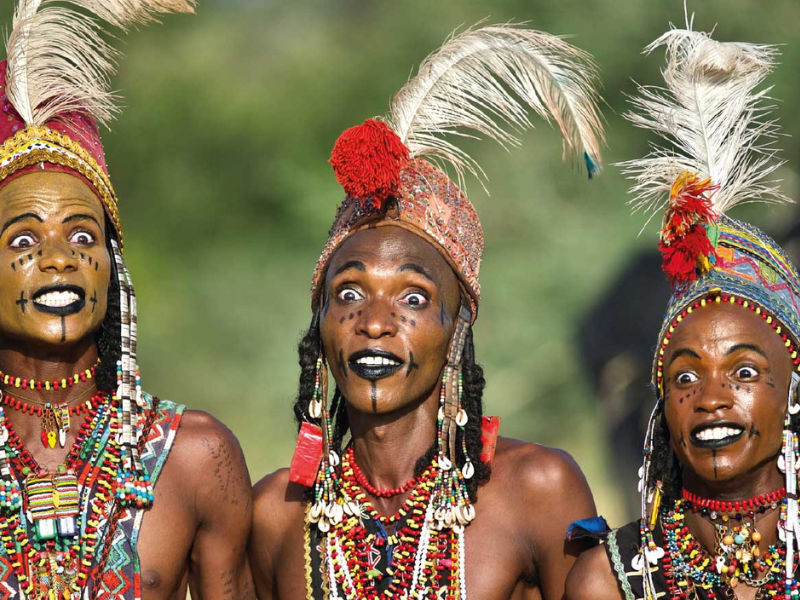The strategies for driving successful corporate events in Nigeria are undergoing a significant transition. It is sponsored by innovative initiatives that combine culture and technology. Understanding these shifts is essential for event planners and organisers seeking to offer impactful and memorable events.
However, the future of planning successful corporate events in Nigeria goes beyond just focusing on business concerns; It will demand a conspicuous shift from the normal template of strict business to an inclusive experience.
For Nigerian companies to successfully appear unique while they showcase their brands on a global stage, event planners must rewrite the rules by combining indigenous culture and technology to create events that are both culturally relevant and innovative. Imagine decorating the aesthetics of the venue to reflect the patterns of the indigenous fabric designs, including souvenirs, while interactive screens connect executives from Lagos to London in real time, eliminating boundaries of time and experiences.
Ready to discover how to drive successful corporate events and stay ahead in this dynamic industry in Nigeria? Let’s dive into the top three strategies redefining success in Nigeria’s corporate events.
Strategy one: Embracing hybrid and Virtual event models
To consistently run successful corporate events is to use the hybrid and virtual event models. It allows participants to join in person or electronically. A successful business event, such as a product launch, can broadcast live to global viewers while simultaneously captivating in-person participants with remarkable experiences.
Some of the benefits event planners will enjoy using the models may include cost-effectiveness, wider reach and accessibility, sponsorship opportunities, enhanced data analytics and increased flexibility.
Furthermore, this strategy offers the event professional as well as the organisers the ability to execute some engagement strategies, monitor them and effectively analyse them also. For instance, you can drive conversions on social media platforms that have been integrated into the event landscape. Attendees can be encouraged to post live tweets, live photos and selfies using chosen hashtags for the events. You can also gather live opinions both from the physical attendees and those attending virtually.
In addition, considering Nigeria’s infrastructural challenges, the vast geographical nature and the problems these could present, the hybrid and the virtual event models are the best options, especially when targeting a global and a large audience. The issues of logistics, such as transportation and accommodation that could be burdensome, are addressed drastically.
Strategy two: Blending traditional and modern event approaches
Another way for driving a successful corporate event in Nigeria is to use the strategy of blending traditional and modern event approaches in most of the event processes and sequences. This strategy includes incorporating traditional music, clothes, and cuisine, into modern settings, resulting in an unusual mood that appeals strongly to attendees.
A 2024 survey revealed that 68% of Nigerian professionals chose events that reflect their local identity over generic Western formats. This particularly shows that modern audiences, particularly millennials, prefer authenticity.
For example, a Port Harcourt energy summit livestreamed Igbo masquerade and other cultural performances to global partners, increasing social media engagement by 40%. The major idea behind this strategy is to sync the business of the day with a balance of culture and emotion. It creates an atmosphere of suspense and memorability, an experience that always breaks the ice. Interestingly, by carefully mixing these components, event planners honour Nigeria’s diverse culture.
While combining modern design, technology, and interactive aspects keeps the event feeling current and relevant, honouring Nigerian heritage at corporate events while appealing to modern audiences creates an inclusive environment that values cultural identity and traditions, resulting in increased trust and participation among guests. It paints a favourable image for the business environment in which the business will be conducted.
In the end, this approach increases the impact of a corporate event, making it memorable and effective in attaining company objectives in Nigeria’s competitive corporate scene.
Strategy three: Driving innovation in the event planning
Innovation in Nigerian corporate event planning is increasingly defined by the integration of advanced technologies such as artificial intelligence (AI), event management apps, and some environmental practices. The major benefits of integrating advanced technology in our corporate event in Nigeria may include increased personalisation for attendees, whether they are virtual or in real time, which automatically enhances overall engagement, decision making that is driven by data and simplified event management processes.
Innovation also entails translating global trends to local contexts, such as introducing Nigerian art, fashion, or Afrobeat performances into formal events. This mix of technology and culture increases engagement while leaving a lasting impression.
While event apps have gained ground in the country, AI chatbots are gradually gaining prominence. However, there is a need to scale it further because of its immense benefits. Amongst many other functions, it can handle guest enquiries in real time, speeding registration and delivering fast information about schedules or speakers, as well as facilitate networking among attendees.
For example, a major Lagos fintech summit recently used an AI driven matchmaking tool to connect participants with similar interests, resulting in more meaningful networking between businesses and individuals.
In essence, embracing innovation in planning successful corporate events directly impacts and improves engagement and operational efficiency at corporate events.
In conclusion, those who embrace innovation, skilfully integrate tradition and modernity, and exploit the power of hybrid and virtual experiences will shape the future of corporate events in Nigeria. Event planners may create memorable, engaging, and efficient meetings that appeal to a wide range of audiences by incorporating cutting-edge technologies and preserving cultural heritage.











